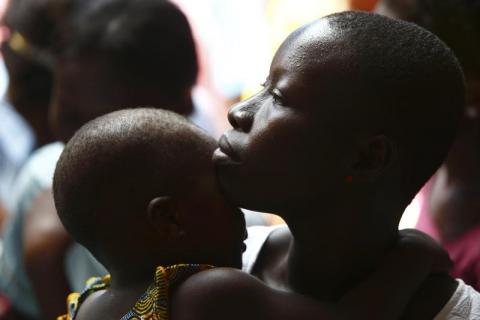Advertisement
Togo failing in mission to eradicate child labour, says U.N. rapporteur
DAKAR (Thomson Reuters Foundation) - Child labour is still widely accepted in Togo and the government is not doing enough to stop it, said the U.N. Special Rapporteur on contemporary forms of slavery in an interview on Friday.
Many children in the West African country are forced into domestic servitude or hard labour at a young age, driven by poverty and cultural tradition, said Urmila Bhoola following a visit to Togo to assess the situation.
"There is a complete lack of data, but it seems this practice mainly affects girls and some are sent abroad," she told the Thomson Reuters Foundation.
"It is very much entrenched in cultural practices and tradition."
Togo ranks 45th out of 167 countries on the Modern Slavery Index published by the Walk Free Foundation, which estimates that 50,000 people are slaves in the country of 7.4 million.
The government is aware of the issue but struggling to eradicate it, said Gilbert Bawara, Togo's minister of civil service, labour and administrative reforms.
"It is a lingering problem, mainly in the informal sector where the application of labour laws is much more complicated," he told the Thomson Reuters Foundation.
"The government is working to resolve the cases that have been identified," Bawara said.
School is free in Togo but remains out of reach for families who cannot afford books and uniforms, said Bhoola.
In a practice known as "confiage", parents send their children to live with relatives who promise to send them to school in exchange for helping with housework, she said. But this is rarely what happens.
"It really results in extreme exploitation," said Bhoola, who spoke with several victims.
One girl she met been sent to live with an aunt in Nigeria at the age of four and was forced to sell charcoal in the market when she was eight. She was eventually rescued by a charity.
Other girls work as domestic servants, and boys work in fields, markets and mines, said Bhoola, adding that the problem is regional and facilitated by porous borders.
The global police organisation Interpol rescued 157 child slaves in April from neighbouring Benin and Nigeria, some of whom came from Togo, it said.
The worst forms of child labour include slavery, trafficking, sexual exploitation and more, as defined by the International Labour Organization.
Togo committed to end the worst forms of child labour by 2025 under the U.N. Sustainable Development Goals, but while the government has made some efforts it is not on track, said Bhoola.
(Reporting by Nellie Peyton, Editing by Claire Cozens)



















Add new comment